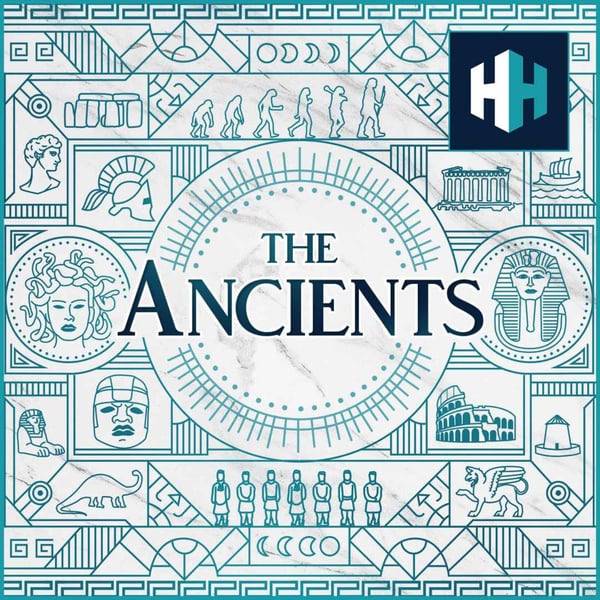The Last Neanderthals
The Ancients
History Hit
4.7 • 3.5K Ratings
🗓️ 16 February 2025
⏱️ 55 minutes
🧾️ Download transcript
Summary
For hundreds of thousands of years Neanderthals have roamed the lands of what is today Europe and western Asia. But how did they survive, and what caused their decline?
Tristan Hughes delves into the fate of the last Neanderthals and continues our Ice Age mini-series with Professor Chris Stringer from the Natural History Museum. They explore how Neanderthals thrived across diverse climates and investigate the intriguing story of Neanderthals' eventual decline alongside the arrival of Homosapiens 60,000 years ago. Professor Stringer also shares the fascinating evidence of interbreeding that has left traces of Neanderthal DNA in modern humans and groundbreaking insights from recent archaeological and DNA research, that shed light on why Neanderthals went extinct.
Presented by Tristan Hughes. The audio editor and producer is Joseph Knight. The senior producer is Anne-Marie Luff.
All music courtesy of Epidemic Sounds
The Ancients is a History Hit podcast.
Sign up to History Hit for hundreds of hours of original documentaries, with a new release every week and ad-free podcasts. Sign up at https://www.historyhit.com/subscribe.
You can take part in our listener survey here: https://insights.historyhit.com/history-hit-podcast-always-on
Transcript
Click on a timestamp to play from that location
| 0:00.0 | Hi, I'm Tristan Hughes, and if you would like the ancient ad-free, get early access and bonus episodes, sign up to History Hit. |
| 0:08.1 | With a History Hit subscription, you can also watch hundreds of hours of original documentaries, including my recent documentary all about Petra and the Nabatans, and enjoy a new release every week. |
| 0:19.3 | Sign up now by visiting historyhit.com slash subscribe. |
| 0:41.3 | It's 55,000 years ago. For hundreds of thousands of years, Neanderthals have roamed the lands of what is today Europe and Western Asia. |
| 0:48.3 | Over that time, they've been able to survive and thrive in a whole host of different climates and environments, |
| 0:55.6 | stretching from the coasts of Iberia and southern Britain to Iraq and Western Asia and even |
| 1:01.1 | Siberia. They lived in caves, these natural places of shelter. They carved effective tools out |
| 1:07.8 | of wood, antler, bone and stone. They made art, they lit fires. |
| 1:13.4 | They had their own methods of communication, although what they were we don't know. |
| 1:18.3 | And yet, 55,000 years ago, this was a species in decline. And what's more, a new species |
| 1:25.3 | was about to emerge onto the scene, one that would come into direct contact and potentially conflict with Neanderthals. |
| 1:33.3 | Homo sapiens, us. |
| 1:36.3 | It's The Enchant's on History Hit. I'm Tristan Hughes, your host. |
| 1:41.3 | Today we're continuing our Ice Age min-series this February by exploring the |
| 1:45.3 | enigmatic story of the last Neanderthals and why they ultimately went extinct. This is a really |
| 1:52.0 | exciting field. Over the past few years, new information has come to light thanks to a mix of |
| 1:57.1 | archaeological and DNA research, revealing how late Neanderthals and Homo sapiens |
| 2:02.1 | interbred some 50,000 years ago. Many of us in the world today have Neanderthal DNA |
| 2:08.9 | in our genomes. Yet the Neanderthals themselves soon went extinct. Many reasons have been put |
| 2:15.2 | forward as to why this occurred, closely linked with the arrival of modern humans in their territories. |
| 2:21.0 | To talk through the possibilities, I was delighted to interview Professor Chris Stringer from the Natural History Museum. |
| 2:27.8 | Chris is one of the leading lights in the field of human evolution. |
... |
Transcript will be available on the free plan in -44 days. Upgrade to see the full transcript now.
Disclaimer: The podcast and artwork embedded on this page are from History Hit, and are the property of its owner and not affiliated with or endorsed by Tapesearch.
Generated transcripts are the property of History Hit and are distributed freely under the Fair Use doctrine. Transcripts generated by Tapesearch are not guaranteed to be accurate.
Copyright © Tapesearch 2025.

